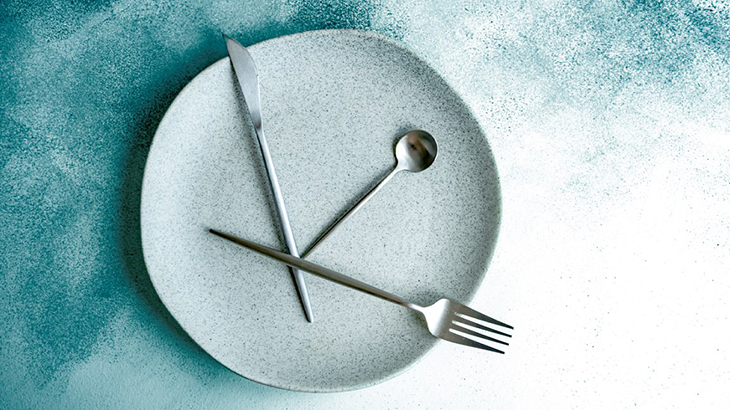
When it comes to weight loss, some practices are better than others. The number of calories you take is more important when it comes to weight control than the actual time you eat. This is what a recent study found. Researchers found that fewer calories and fewer meals is a much more effective way to lose weight than intermittent fasting.
People have tried to slim down and have looked into several ways, but in the end, they saw that cutting down on calories and eating fewer larger meals may be better when it comes to weight control. As for intermittent fasting, this is when you cycle between brief periods of little or no eating and regular eating. The findings of the new research have been published in the Journal of the American Heart Association.
In order to get the findings for the study, researchers looked at electronic health records of around 550 adults. They were able to see that the total daily number of large meals (more or less at 1,000 calories) and medium meals (more or less at 500 to 1,000 calories) were linked to increased weight gain when they had a follow-up exam six years later. They also saw that eating fewer small meals (which is less than 500 calories) was linked to weight loss.
The researchers also observed that the window of time between first to last meal was not linked to the increase or decrease in weight.
For Chika V. Anekwe, MD, an obesity medicine physician from Massachusetts General Hospital (MGH) as well as an Instructor in Medicine at Harvard Medical School in Boston, the findings of the new study validates the well-established research that showed that the total amount of calories you eat plays a bigger role in weight control, even more than the timing. She, however, was not involved in the study.
Dr. Anekwe also said that intermittent fasting isn’t all that bad because it also comes with many other benefits such as improving longevity and helping control blood sugar levels.
“For some people, restricting the time interval of food intake naturally helps them to eat less overall, so for those individuals it can play a role in weight loss,” she said. “However if someone tends to eat more during the fasting window than they would have if spreading the food intake out over a longer time period, then weight loss will not be expected in that scenario.”
People who fast may also assume that they don’t have to worry about the portions, but that’s far from the truth. “At times, fasting can lead to an ‘all or nothing’ way of thinking,” shared Julia Zumpano, RD, with Cleveland Clinic’s Center for Human Nutrition. “For instance: ‘I haven’t eaten all day so I am going to eat what I want and as much as I want.’ As clinicians, we can help our patients by suggesting a structure for healthy meals and snacks evenly distributed throughout their day.”
Lead study author Di Zhao, PhD is an associate scientist in the division of cardiovascular and clinical epidemiology at Johns Hopkins Bloomberg School of Public Health in Baltimore. He recently was in a press event and said that the findings they made were not able to prove direct cause and effect that meal frequency and total calorie intake were more pressing risk factors for weight change when compared to timing actual meals.
When it comes to the study’s participants, about 8 out of 10 stated that they were white adults; 12 percent reported as Black adults; and around 3 percent identified themselves as Asian adults. Most had a college education or higher and the average age was 51 years old. As for the average body mass index, it was 30.8, which, technically falls under the obese category.
The research team also depended on a mobile application, Daily24, for the participants to bae able to monitor their sleeping, eating, and waking time.
“For the public, the main takeaway is that the total amount of energy [food] intake plays a more significant role in body weight than the specific timing of that intake,” said Anekwe. “That being said, it is still encouraged to focus more on quality of the food intake for health and weight management as opposed to quantity. Limiting processed foods and added sugars as a rule are important for maintaining a healthy weight.”



